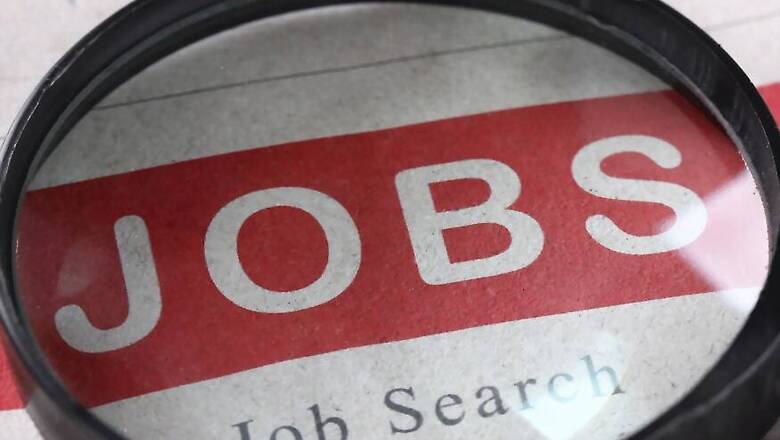
views
Sydney: Australia's unemployment rate rose to the highest in eight months while full-time jobs fell, official data showed on Thursday, cementing views its central bank may be forced to lower rates soon to stimulate the economy.
The local dollar skidded 0.4 percent to $0.6891, the weakest since early January when a currency 'flash crash' briefly sent the Aussie to $0.6743.
The data has "increased the risk the Reserve Bank of Australia (RBA) will cut the cash rate in June, earlier than our call of July," said Kaixin Owyong, Sydney-based economist at National Australia Bank.
The RBA has held rates at a record low 1.50 percent since August 2016. It is counting on labour market strength for a long-awaited pick up in wage growth and inflation in the face of a sharp economic slowdown led by a property market downturn.
"In recent statements, the RBA has said that a lack of improvement in the labour market would warrant a cut, such that today’s deterioration is likely to be of great concern to them," Owyong added. "We now place a 50/50 chance of a cut in June."
Thursday's figures showed 28,400 new jobs were created in April, surging past expectations for a rise of 14,000. But in an unwelcome sign, all of the increase was led by part-time work, with full-time declining 6,300.
Australia is creating jobs at a brisk annual pace of 2.6 percent, much faster than the 1.6 percent rise in population, but that is still not enough to meet with surging labour supply.
The unemployment rate rose for a second straight month to 5.2 percent, when analysts had expected 5.1 percent, as the participation rate climbed to 65.8 percent indicating more people went looking for work.
The data will prove a setback for Australia's governing Liberal-National coalition, which is heading into this weekend's general election claiming to be a sound manager of the economy. Opinion polls show the opposition Labor Party is the favourite to win.
Forward-looking indicators of labour demand are now pointing to emerging weakness.
The National Australia Bank monthly employment index slipped last month, dragging it down to 51.4, the lowest reading since September 2016, from 53.4 in March.
A job index by Westpac has also turned down, suggesting that employment growth should slow to around 2 percent in the July-September period.
Some economists believe the labour market will soon revive after election uncertainties have faded.
"Business will get back to business as we have seen after previous polls," said CommSec economist Craig James.
"More people are finding work and more people are looking for work. So the job market remains solid. The Reserve Bank will not make a knee-jerk response to the latest jobs figure. It will wait for clear air to make a judgement."




















Comments
0 comment